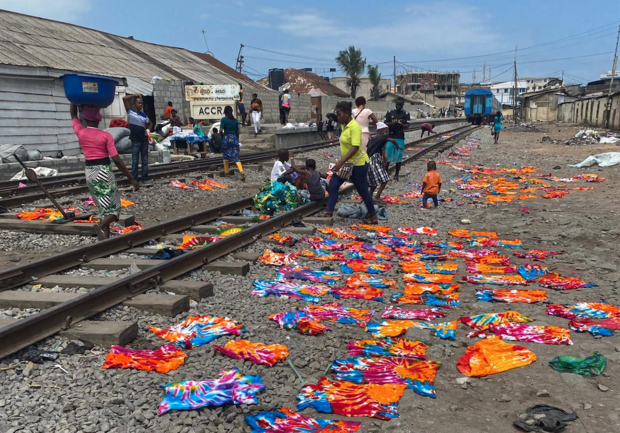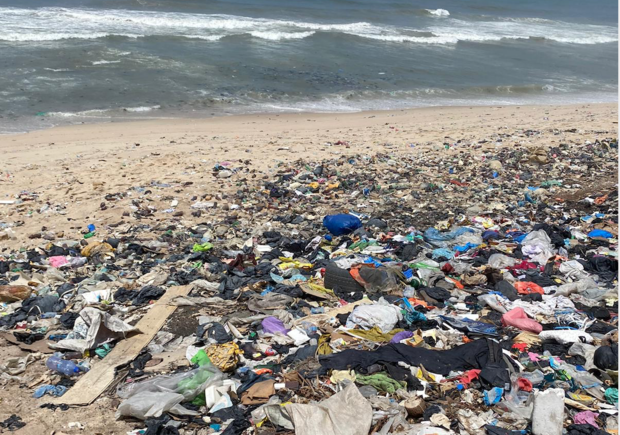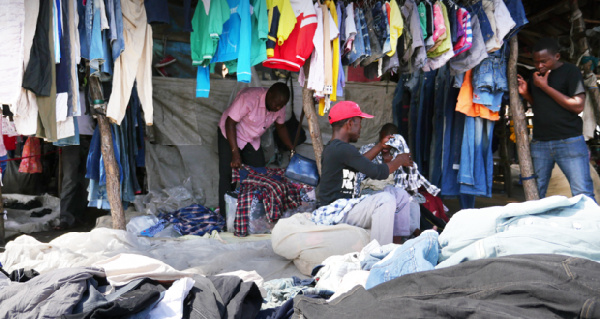Fast fashion in the U.S. is fueling an environmental disaster in Ghana
The rise of fast fashion in the United States is supporting an invisible “salvage market” that sees American clothes waste shipped to faraway countries where it fills marketplaces, clogs up beaches and overwhelms dumps.
There has been a five-fold increase in the amount of clothing Americans buy over the last three decades, but each item is worn only an average of seven times, according to reports. This has resulted in more discarded clothing than ever.
Many Americans donate their used clothing to charities when they are finished with it, under the assumption that it will be reused. But with the increasing amount of items being discarded, and the poorer quality of fast fashion, less and less can be resold, and millions of garments are put into bales and shipped abroad every year.
“Whatever they cannot sell in their thrift stores gets sold off into the ‘salvage’ market,” Liz Ricketts, co-founder and director of the OR Foundation, told CBS News.
“It’s a long and complicated supply chain that is completely invisible to not only the average person, but even to people participating,” Rickets said.
“The U.S. is the biggest culprit”
At Ghana’s Kamanto market, around 15 million items of used clothing from Western countries arrive every week. The entire population of Ghana is only 30 million.
“The whole fast fashion model is built around… building cheap clothing, and the U.S. is the biggest culprit, exporting more second-hand clothing than any other country on earth,” Samuel Oteng, a fashion designer and project manager at the Or Foundation, told CBS News.
Must Read: Government has better resources; it has no excuse in running economy – Tekper
Trucks offload bales of textiles — called Obroni Wawu, or “Dead White Man’s Clothes” — at the market, which is a seven-acre maze of over 5,000 stalls. The bales are purchased by market traders — who do not know ahead of time what’s in them — for between 25 and 500 dollars each. They then clean, tailor, and re-dye what they can of the clothing to give it new life.

But Oteng says upcycling is becoming increasingly difficult because of the poor quality of fast fashion garments.
“Before they used to have good quality clothes, but now there’s a lot of trash,” he said.
“I feel like waste is being built into the model of fast fashion: Overproduce, overproduce, overproduce. In the end, people wear clothes for just like two weeks, and then just discard them. The waste doesn’t end up in America. Ultimately it ends up here in Kantamanto.”
“Do not hide under the guise of donations”
The upcycling work of traders at Katamanto is not enough to reduce the glut of clothing created by America’s addiction to fast fashion. It is estimated that 40 percent of all the clothing bales sent to Ghana end up in landfills.
And some of the unsold clothing washes out to beaches when it rains, creating massive tangled webs called “tentacles” in the sand.

The director of waste management for the Accra Metropolitan Assembly, Solomon Noi, delivered a message to the U.S.: “Deal with it.”
“Do not hide under the guise of donations of secondhand clothing, and then you ship them over to us just to cause problems to us,” he said.








